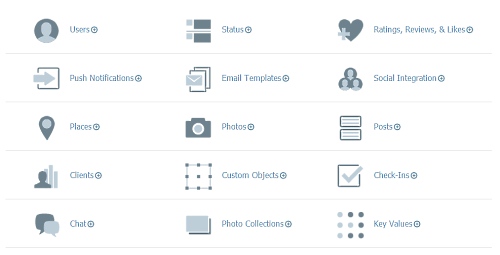モバイル専用クラウドをAppceleratorが提供開始。新登場の「Titanium 2.0」と統合
JavaScriptを開発言語としてiOSやAndroidに対応したネイティブなモバイルアプリケーション開発環境を提供しているAppceleratorが、開発環境の新バージョンとなる「Titanium 2.0」と同時に、モバイルのバックエンドに特化したクラウドサービスの提供を発表しました。
同社は2月に、モバイル向けクラウドサービスを提供する「Cocoafish」を買収し、第2四半期前半にはTitaniumと統合すると発表していました。その宣言通りにTitanium 2.0の一部としてクラウドサービスを統合してきたことになります。
BaaSの認知度が一気に高まるか
モバイル向けクラウドサービスは「BaaS」と呼ばれ、以前の記事「モバイル向けの新クラウド、BaaS(Backend as a Service)とは何か。「Parse」が正式サービス開始」でも解説したように、モバイルアプリケーションのバックエンドとして求められるデータストア機能、プッシュ通信機能、ユーザー管理機能、ソーシャルとの連係、ロケーションとの連係などを備え、それらの機能をモバイルアプリケーションからAPIで呼び出すことで、サーバ側のコードを書くことなく、クラウドと連動するモバイルアプリケーションを効率よく開発できる環境を提供します。
Cocoafishが提供していたクラウドサービスも同様であり、今回はそれがAppceleratorが提供するTitaniumブランドに変わり、開発環境となるTitanium Studioと統合し、JavaScript APIを通じて開発者が容易にクラウドサービスを利用しやすくなっています。また、Titanium Studioからだけでなく、Objective-C、Java、PhoneGapやSencha TouchのようなHTML5/JavaScriptフレームワークからも利用可能です。
モバイルのデータをクラウドに保存したり、ソーシャルネットワークと連係してログインする機能をサーバ側のコードを書かずに実現できるBaaSは、モバイルアプリケーションの開発者にとって非常に魅力的です。しかしBaaSはまだ新しいサービスであるため、一部で話題になってた程度でした。
今回Appceleratorのようなモバイルアプリケーション開発においてメジャーな企業がサービスとして提供し始めたことで、BaaSの一気に認知度が高まり、急速に普及することになるかもしれません。
以下がAppceleratorのWebサイトに掲載されているクラウドサービスの機能一覧です(日本語訳するとかえって分かりにくくなりそうだったので原文のまま引用します)。

- User management: provide access, authentication and cross-platform controls.
- Photos: store, share, and publish photos from within the app.
- Photo collections: store, share, and publish photo albums from within the app.
- Places (rich location storage): harness location to provide better search results and pointed ads, for example, without setting up GIS or a latitude/longitude server.
- Social integration: enable customer login and authentication using Facebook and Twitter.
- Custom data objects: create and analyze data derived from searchable fields, such as location or interactions with other users to optimize app features and offers.
- Push notifications: push messages to customers and employees regardless of device and whether or not the application is running.
- Check-ins: enable check-ins from within any app.
- Status updates: make apps more social by enabling users to post status updates from wherever they are.
- Chat: embed IM within apps to allow multiple user and user group threads. Ratings and reviews: add ratings, reviews and “likes” to apps without having to build an entire rating machine and server-side infrastructure.
- Discussion forums: provide users the ability to post updates, reviews or other content and allow others to respond. Messaging and email templates: plug-in pre-built messaging and email templates.
- Client identification: cloud-connected apps help developers identify the classes of devices people are using to access apps, providing insight into how to better optimize content.
- Key values: simple, unstructured storage for any kind of content.
あわせて読みたい
Amazon、クラウドアプリのマーケットプレイス「AWS Marketplace」開始。数クリックでクラウドアプリが利用開始
≪前の記事
クラウド基盤のCloudStackは年内にOpenFlow対応へ。今後のロードマップとApacheライセンスに変更した理由は?

